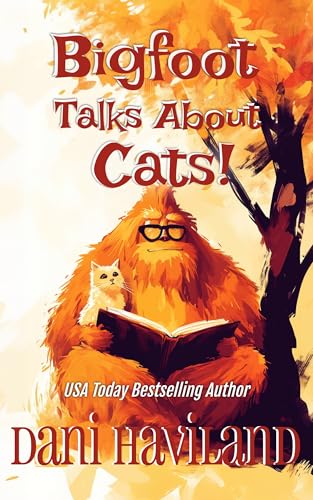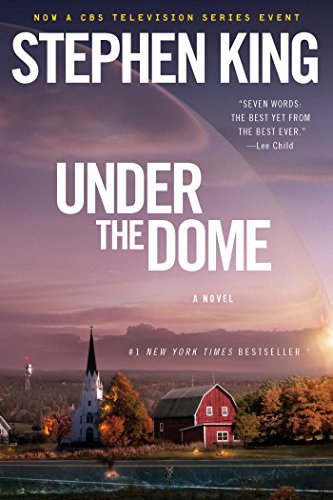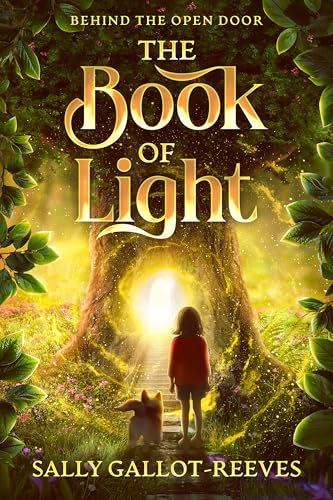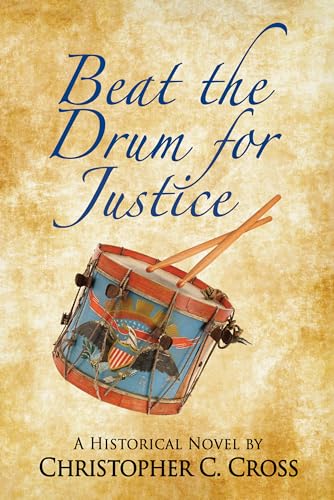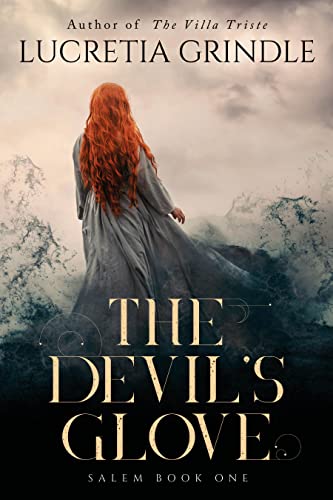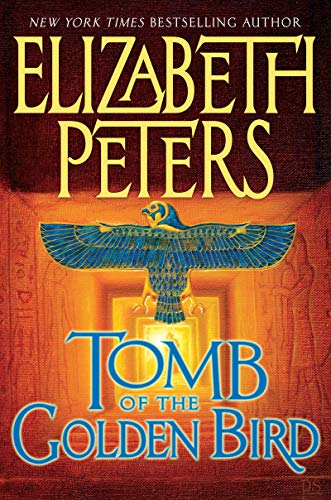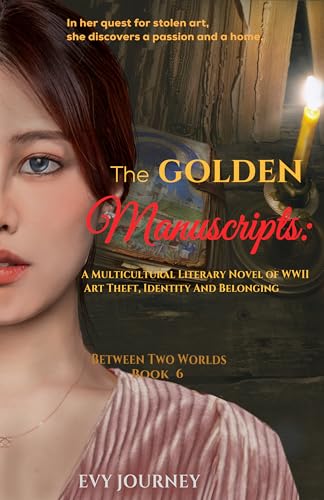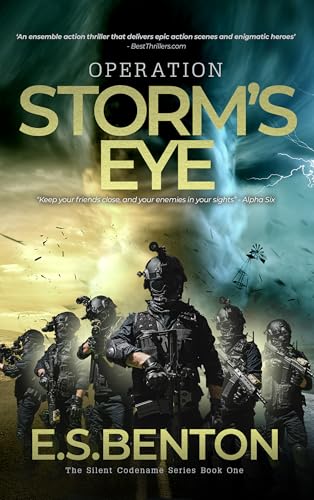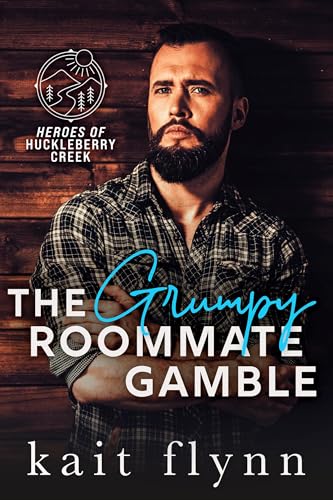History documents the fact that a Shakespeare play titled Cardenio was performed at London’s Globe Theater in 1613. References to the play turn up in various diaries and documents written in the 1600s. Cardenio, and other plays attributed to Shakespeare, did not survive in written form.
Author Andrew Delaplaine wraps the intriguing history of Cardenio and the Globe in this fascinating novel that takes off when a modern-day boy named Charlie jumps through a trap door at the modern iteration of the Globe and goes back in time to the days of the original performance.
Think “Shakespeare meets Being John Malkovich meets Back to the Future” and you’ll be ready for today’s generous 10,000-word excerpt to transport you, with Charlie, back to the days of the Bard — and all for just 99 cents for a limited time!
Scroll down to begin reading the free excerpt
Text-to-Speech and Lending: Enabled
Here’s the set-up:
It’s Christmas Eve, and the opening night of “A Midsummer Night’s Dream” in a student production at the reconstructed Globe Theatre on London’s South Bank, and 16-year-old Charlie has the coveted role of Puck.
When a mysterious man in the back of the theatre causes Charlie to flub a line, he drops through the trap door in the stage, and is taken back to 1594 and the original premiere of “A Midsummer Night’s Dream” eight weeks before Christmas Eve.
Charlie becomes a member of the Globe acting company and while trying to get a copy of Shakespeare’s famous lost play, “Cardenio,” he gets caught up in a plot to assassinate Queen Elizabeth I and install Mary, Queen of Scots in her place.
But there’s a deadline: if Charlie doesn’t return home by Christmas Eve, he’ll be stuck in 1594 forever.
Written in the Tower of London the night before he was hanged, drawn and quartered for his traitorous role in the Babington Plot, by Charles Tichborne.
My prime of youth is but a frost of cares,
My feast of joy is but a dish of pain,
My crop of corn is but a field of tares,
And all my good is but vain hope of gain;
The day is past, and yet I saw no sun,
And now I live, and now my life is done.
My tale was heard and yet it was not told,
My fruit is fallen, and yet my leaves are green,
My youth is spent and yet I am not old,
I saw the world and yet I was not seen;
My thread is cut and yet it is not spun,
And now I live, and now my life is done.
I sought my death and found it in my womb,
I looked for life and saw it was a shade,
I trod the earth and knew it was my tomb,
And now I die, and now I was but made;
My glass is full, and now my glass is run,
And now I live, and now my life is done.
Chapter 1–Christmas Eve at the Globe
“It says here in the paper they’re going to clean out Chaucer’s tomb at Westminster Abbey after Boxing Day,” said George, trying to read the London Times as he bounced around in the back seat of the Range Rover. “It seems they haven’t opened his resting place since the 1590s.”
“I’ll actually be at that ceremony,” said Sir Gerald as he drove along in the rain, the windshield wipers slapping back and forth. “Apparently, since Chaucer was the first poet buried in the Poets’ Corner, his tomb kept getting pushed back and obstructed by all the newer tombs, so it’s always been hard to get to. So no one’s touched it in all these years.”
“That would be fun to go to,” said George in a tone that left no doubt that he thought attending such a ceremony would be the least “fun” thing he could think of doing.
Sir Gerald looked over to his son Charlie sitting up front in the passenger seat.
“It’s going to be a great Christmas Eve, Charlie, seeing you in the play. Your mother and I can’t wait for eight o’clock.”
“You must be very proud of Charlie, Sir Gerald, getting the part of Puck,” said George as Charlie’s dad drove down the rain-slicked ramp off the Southwark Bridge Road and into Park Street. A leaden sky hung low over London.
“His mother and I are very proud, George, especially considering my profession,” Sir Gerald chuckled.
Charlie looked over his shoulder and rolled his eyes so his best friend George could see him, thinking his father’s gaze was focused firmly on the road ahead.
“I saw that, Charlie,” Sir Gerald wanted to make clear. “I’m not amused.”
Oh, grump, thought Charlie.
“He’s really good as Puck, Sir Gerald. Why haven’t you sat through any rehearsals?”
“We want to experience the first night with a fresh perspective. But you say he’s really good?”
“Yes, sir,” came the little-too-eager reply from the back seat, thought Charlie. “He’s just excellent. Everybody says so.”
“Even the director?” Charlie finally joined the conversation.
There was a pause as George mulled over his answer.
“Is James Dalton giving you problems?”
“No, Dad. Not really.”
“I don’t see why he has any problem. Isn’t his son playing Bottom?”
“Yes, he’s playing Bottom.”
Sir Gerald, who at forty-nine had curly salt and pepper hair and a ruddy complexion, took a right into New Globe Walk.
“Well, that’s a great part-even has more lines than Puck. I can’t see what his problem is…. Ah, here we are.”
Sir Gerald pulled up in front of the reconstructed Globe Theatre. The Range Rover came to a stop and the boys grabbed their backpacks and tumbled out into the busy street glistening with rain.
“Thanks, Dad,” Charlie said. “See you tonight.”
“Charlie, I wish you were having more … fun … with all this. Just remember, your mom and I are really excited and we can’t wait to see you tonight. We really can’t.”
“But I’ll bet you wish we were doing Cardenio. Right, Dad?” Charlie said, a smile finally working its way across his wholesome, open face. Charlie had his father’s curly hair, but his was a rich blond color and the director of the play had ordered him to let it grow, so now he had long luxurious curls dropping to just above his neck.
“Well, of course, that would be something really special,” he laughed.
Charlie closed the door and his dad backed out of the driveway and moved into traffic. Charlie and George turned toward the Globe Theatre.
“What’s all that about Cardenio?” asked George.
“Cardenio is the most famous play never performed in modern times.”
“Why isn’t it performed?” George asked a pudgy George as he huff-puffed besides the slender Charlie.
“Because it’s ‘lost.'”
“‘Lost’?” asked George, his jowly face scrunching up into a questioning frown.
“No one alive has seen it.” Charlie nodded across the street to a small open-sided truck selling pastries. He looked back to George, his blue eyes dancing with a sudden new idea. “Let’s get a cupcake before we go in.”
“Sure-we have time. What do you mean, about the lost play, I mean?”
They slipped through traffic and dashed across the street, the chubby George laboring a little to keep up with Charlie.
“Well, we know-that is, people like my dad and I know-that the play existed because it’s mentioned in the historical record. You know: diaries, court records where they say it was performed before Queen Elizabeth or King James, records like that. But no copy of the play’s come down to us, and if it was ever published, all the copies have been lost. Or, at least nobody’s ever discovered one.”
George nodded to the vendor and got a chocolate cupcake, paying the man. Charlie took one with a vanilla topping.
“Whoa. You’d think if it was Shakespeare…”
“They didn’t value the plays as written as much as they valued them as performed. If a play was printed, it could be stolen by other theatre companies and the writer wouldn’t make any money.”
“Things are different today,” said George.
“If his partners hadn’t printed most of his plays a few years after he died, half of what Shakespeare wrote would have been lost forever.”
“Like Cardenio.”
“Like Cardenio. In fact, my dad’s on his way to a symposium at Oxford this afternoon to deliver a paper he wrote on a fragment someone discovered and claims is part of the Cardenio manuscript.”
“Is it?” asked George, cake frosting smudging his cheek.
“Dad says not,” said Charlie, pointing to George’s cheek. “You’ve got some frosting on your cheek.”
“Well, he ought to know-he’s England’s greatest Shakespearean scholar,” said George, sticking out his tongue and licking up the misplaced frosting.
Charlie rolled his eyes.
“And don’t I know it.”
Just then, the director, James Dalton, and his son Frederick came round the far corner of the Globe, heading toward the entrance.
James went inside but Frederick saw Charlie and George and ran over to the pastry cart.
“I’ll have the strawberry tart,” he told the vendor. “You boys looking forward to rehearsal?”
“Big night tonight, Frederick,” said George. “Know all your lines?”
“Sure I do,” Frederick said with a nasty smirk. “I even know Puck’s lines-should the actor playing him take suddenly ill,” he added, then purposefully bumped his arm against Charlie’s, causing him to drop his cupcake into the gutter.
“Now see here,” piped up the vendor, who saw the whole thing.
“Sorry,” smiled Frederick, just as the rain began to fall in torrents. Frederick ran out from under the protective awning attached to the truck and into the rain and made for the theatre.
“Why that…” George started.
“Doesn’t matter. C’mon, we’ll be late.”
Chapter 2–The Dress Rehearsal
George and Charlie ran into the theatre, passing beneath a wooden scroll above the entrance with the words “All The World’s A Stage” carved into it.
The interior of the circular Globe was poured concrete, a modern day convenience. Elizabethan audiences would have been used to standing on packed dirt, or even mud, since the thatching on the roof only went around the edges-the center was open to the elements.
The rain immediately showed signs of letting up. James Dalton stood on the five-foot high squared-off thrust stage under a canopy roof that covered about half the stage, protecting him and the arriving students from the downpour.
“Everyone, please come up onto the stage and out of the rain. This will soon pass and we’ll begin rehearsals. Everyone look to your costumes in the Tiring Room.”
George and Charlie stood out of the rain in one of the covered seating areas.
“So why are you in such a funky mood about this play?” George asked. “You’re really good in it,” he said, his freckled jowly cheeks wobbling about as he munched on some M&Ms, between bites of his cupcake.
“I just don’t like all the backbiting I’m getting from Frederick and some of the others.”
“Here, take the rest of my cupcake. It’s all because your dad’s so important, isn’t it?”
Charlie took the cake and gulped it down.
“No doubt. But I’d rather not get parts when people think he had something to do with it.”
“It doesn’t help that he’s the direct descendant of John Heminges, does it?” George said with a nod to an old portrait hanging above the entrance, a portrait of John Heminges, one of the original partners in the Globe Theatre with Shakespeare and one of the two men responsible for printing the famous First Folio collecting Shakespeare’s plays in 1623, ensuring that half the plays that had never been published in individual editions didn’t suffer the same fate as Cardenio.
“No, that doesn’t help at all.”
“You probably know more about Shakespeare than any kid your age.”
“No question about it. I know more about Queen Elizabeth the First than I do about Queen Elizabeth the Second.”
Frederick came out of the Tiring Room onto the stage carrying Bottom’s donkey head that he would wear in Act III.
“And Frederick’s made no secret that he wanted your part.”
“No, he hasn’t made that a secret. And Frederick’s really good. His audition for Puck was great.”
George shook his head.
“Yours was better. Everybody says so.”
“Still, it’s awkward when his father’s the director.”
“Rain’s stopping,” George said. “I’m off to the booth.”
George climbed some stairs to the tech booth farther up and Charlie went round to the temporary stairs wheeled up to allow access to the stage from the pit, sometimes called the yard, then went back into the Tiring Room where all the costumes were kept.
There wasn’t much to Puck’s costume. A loincloth, really, is all that it was. Charlie found himself wishing they were playing A Winter’s Tale and not A Midsummer Night’s Dream. It was chilly out, and with the rain, Charlie’s loincloth was hardly enough to keep him warm. He kept his jeans and parka on for now. There was no use changing into his costume until he made his first appearance in Act II.
Another thing he didn’t like about wearing the loincloth was he had to parade about the stage half naked. And while he didn’t have a bad body for a fifteen-year-old boy, he certainly didn’t have Frederick’s fine physique. Frederick was a year older than Charlie, a head taller, went to the gym religiously and all the girls swooned over him. Charlie had fine curly blond hair while Frederick had wavy dark brown hair that he wore long.
Charlie made sure his loincloth was in its proper place in the Tiring Room, then stepped out onto the stage. He nodded up to George in the tech booth up behind the top-most seats, and his gaze fell down a tier to the portrait of his ancestor, John Heminges.
The portrait had an interesting history. Legend had it that when the Globe burned to the ground in 1613 when a cannon fired as a sound effect during a performance of Henry VIII caught the thatched roof on fire, John Heminges grabbed his portrait off the burning wall and ran out of the theatre. Some say he left behind all of Shakespeare’s plays, many of them in his own hand, to save his own portrait. The painting even had a pronounced singe mark on the lower left quarter of the picture where the oil paint bubbled up during the blaze.
The portrait was handed down over the generations until it came to Charlie’s dad. When the new Globe opened 12 June 1997, dedicated by Queen Elizabeth II and the Duke of Edinburgh, Sir Gerald Heminges was there to present the portrait to the theatre on indefinite loan.
In Charlie’s mind, these were the circumstances that contributed to his being cast in the part of Puck.
Chapter 3–Thinking about Charlie
Lucinda Heminges, more properly styled Lady Heminges, sat on the first row of seats in the ornate former chapel at Oxford, now in use as a lecture hall, beaming up at her husband as he spoke to the room packed with English literature scholars, students, historians and other important figures in Britain’s literary world.
“… and after examining the twelve page fragment whose discoverer claims is a section of the lost Shakespeare play, Cardenio, I find it wanting in several aspects…”
It seemed to Lady Heminges that her husband had discredited every forged document purporting to be connected to Cardenio in one way or another. In fact, it seemed to her he’d based his entire career on his obsession with Cardenio.
“… and from the editorial content featured in this twelve page fragment, we learn basically the same story as conveyed to us in chapter twenty-four of Don Quixote, where the tale originated…”
Lady Heminges wasn’t really listening to her husband. She’d heard more than she ever cared to hear about the various Cardenio stories. Instead, she was thinking ahead to tonight’s performance of A Midsummer Night’s Dream with her darling boy Charlie as Puck.
“… we all know that Cardenio was an Andalusian nobleman of some wealth and position who since he was very young had loved Lucinda…”
Lady Heminges knew whenever her husband said the name Lucinda that he’d glance up from his prepared remarks to give her a quick look, that his gaze would be doting, full of love.
“… there was nothing to stand between Cardenio’s happiness when he married Lucinda until the day a letter arrived from the Duke who required a companion for his son, Ferdinand. Cardenio, ever the loyal subject, went into the Duke’s service and became very good friends with Ferdinand. The Duke did not know that his son loved a farmer’s daughter, and it was forbidden for a man of Ferdinand’s station to be involved with someone of such a low class. Ferdinand decided that in order to put the farmer’s daughter out of his mind, he had to leave the country for a while, so he asked Cardenio to arrange a trip to Cardenio’s estate where they would tell the Duke that Ferdinand was going on business to purchase some beautifully bred horses. Of course, Ferdinand falls in love with the fair Lucinda, dashing Cardenio’s hopes of happiness.”
Lady Heminges was almost convinced her husband had married her because her name just happened to be Lucinda. But perhaps she was being too harsh. It’s just that the minute he found out her name (when they were still in college), he never left her alone. Even then he was obsessed with Cardenio. He was shocked that he would ever meet anybody named Lucinda quite by accident, and believed it was Fate that brought them together.
Perhaps he was right.
They’d been together for thirty years now, had three beautiful children (Charlie was the baby) and life had been as interesting as she’d ever hoped it would be, coming from a little village in Sussex.
She especially enjoyed the “research” trips to Spain where her husband was determined to trace down her own family’s ancestral heritage. (Her family they could only trace back three hundred years-her husband’s went back six hundred before being lost in the mists of time.)
“… and after working with some of our most experienced analysts, we’ve determined factors such as the wrong age of the paper, the quality and age of the ink-and even the calligraphy-are inappropriate to the time. All these factors point to a forgery. And not an accidental forgery, but a purposefully created one.”
There were mumbled comments now passing through the room.
For her part, Lady Heminges just couldn’t wait for Act II to begin tonight at the Globe Theatre-that’s when Puck made his entrance with Oberon, King of the Fairies.
Chapter 4–Frederick Challenges Charlie
Back at the Globe, the weather had cleared considerably. There was a break in rehearsals, and George had come down from the tech booth to go over some lighting cues with James Dalton. He came up to Charlie, who was chatting with Julia, the pretty girl playing Titania, Queen of the Fairies, and who was also Frederick’s girlfriend.
“Well, I just do not see why Frederick wants to play your part, Charlie,” said Julia. “He and I have some great scenes when he’s Bottom, and if he plays Puck, we won’t have a single scene together. I’d rather he played Oberon.”
“No, but if he’s Puck, he gets to take his shirt off for all the girls to admire.”
Julia’s eyebrows went dangerously up.
“The only girl who’s seeing him with his shirt off is me.”
She seemed very emphatic to Charlie.
“Where’s our noble Herr Direktor?” George wanted to know.
Julia shook her long blonde hair.
“Who knows?”
“I don’t really care who plays Puck, Julia.”
“I believe you, Charlie,” said Julia, causing a bit of a flutter when she laid the palm of her hand on Charlie’s chest.
“I mean, it’s only a play,” he said, his heart pounding.
“Maybe you should play Bottom. I bet you’d bring a lot more to the part than stupid Frederick,” she plucked a bit of lint off his parka. “What is he after all but another pretty face?”
“Well…” he stammered as her gaze shifted up to look at him.
“And you know more about Shakespeare than even the director. I think, frankly, that he knows everybody knows this and he just simply resents it.”
“He’s a well known Shakespearean director.”
“Oh, what’s he know?” Julia pouted.
Looking over Julia’s shoulder, Charlie saw George motion for him to come over.
“Excuse me, Julia. Be right back.”
He went from the stage through the open doors of the Tiring Room where George was standing with his cue book.
“What is it?” Charlie asked. “I was just getting somewhere with Julia. She touched my parka!”
“I wouldn’t plan on getting too far with that girl if you don’t want Frederick’s boot on your scrawny neck, Charlie. Now, go to the back door and listen,” George said with a jerk of his head over his shoulder.
Charlie crept down some stairs and toward a door open into the alley behind the theatre. He heard voices raised.
“I still don’t see why I can’t play Puck, Dad!”
“I’ve told you over and over again, Frederick-his father made the suggestion to the headmaster that his son play Puck, that he was shorter than you and the part fitted him better. He’s not necessarily wrong, you know?”
“Still, I had my heart set on it, Dad.”
“The headmaster pressed me on several occasions-there’s not much I can do about it now.”
Charlie edged away from the door and went back to meet George.
“That’s depressing.”
“I think the forecast calls for a chilly evening ahead,” George said with a twisted frown. “Lots of storms, thunder and lightning.”
“Frederick’s going to be a total nightmare to deal with.”
“Just thought you ought to know.”
“I’ll make it easy for him.”
Dalton came in to call the cast together and George made his way back up to the tech booth.
“What was that all about?” asked Julia.
“Nothing.”
“It’s Frederick being an ass, isn’t it?”
“I think the word I’d use is ‘petulant.'”
“Well, it’s quite good he has an ass’s head as part of his costume,” she said with a smile. “He could take it home with him and use it every day at school and all over London and no one would think it didn’t look ‘just right’ on him.”
“Julia, Charlie-places everyone,” Dalton called out.
Dalton was down in the yard below. As soon as he had everybody assembled onstage, Charlie chose his moment and walked downstage.
“What is it, Charlie?” asked Dalton, looking over his notes.
“I’d just like to ask you to consider switching my role for Frederick’s. I’d really love to play Bottom and I know Frederick wants to play Puck. It really doesn’t matter to me.”
“Thank you, Charlie, but my decision’s final. We’ll move on with no changes.”
“I’m really having trouble with the lines.”
Dalton let out an exasperated sigh.
“Charlie, everybody knows you have a photographic memory. And even though Frederick knows Puck’s lines, and you know Bottom’s, we’ll just leave things as they are, if that’s quite all right with you,” he added a little testily.
“Well, I just thought…”
Suddenly, Dalton’s face lit up.
“Wait! I think I’ve got it! Why don’t we let you two boys alternate the roles?”
“What?” Frederick piped up, suddenly interested.
“Why not? You both know each other’s lines. It’ll be a good experience to switch roles.”
Frederick and Charlie actually exchanged smiles. Charlie went over to Frederick and shook hands.
“A good call, yes?”
“Yes,” said Frederick.
“All right,” Dalton called out. “Let’s get started. We’re doing Act Three, Scene One. We’ll start with Frederick playing Bottom and then switch to let Charlie try it.”
The scene began with Quince and all the peasant players who’d gone into the wood to rehearse the play they were to present to celebrate the upcoming Theseus and Hippolyta’s wedding day.
Frederick played the part just perfectly, donning the donkey head Puck had magically given him when he went behind a bush to make his entry. Titania, Queen of the Fairies, sleeps nearby. Puck had squeezed the juice of a flower (called love-in-idleness) onto Titania’s eyes that would cause her to fall in love with the first living creature she saw when she awoke.
Bottom sings to show all his friends (who scattered when they saw his head replaced with that of a donkey, thinking they’d been cursed) that he’s not afraid:
The ousel cock so black of hue,
With orange-tawny bill,
The throstle with his note so true,
The wren with little quill.
At this point, Titania awakes.
What angel wakes me from my flowery bed?
By now, she sees Bottom, and immediately falls in love with him.
I pray thee, gentle mortal, sing again:
Mine ear is much enamor’d of thy note;
So is mine eye enthralled to thy shape;
And thy fair virtue’s force perforce doth move me
On the first view to say, to swear, I love thee.
The scene went on perfectly, not a missed line. In all honesty, Charlie didn’t see how he could improve on Frederick’s performance.
So when it came time for Charlie to play Bottom, he delivered his lines a little hesitantly. Having Julia/Titania stroking his chest amorously wasn’t something that exactly aided his concentration.
As it was, he was pleased to finish the scene without blowing any lines.
But when he saw Julia/Titania rubbing his chest, Frederick went into a rage. Charlie could even imagine Frederick offstage breathing deeply, waiting to beat him into a pulp in the soggy alley behind the theatre.
Still, with her hands all over him and the big donkey head resting on his shoulders, he felt like he was suffocating.
Through the big cut-out eyes in the donkey head, he could see George up in the tech booth covering his mouth to keep from laughing as he stroked his own chest and made faces. He was acting, thought Charlie, like all those other boys in the middle teens who don’t have girlfriends and are always making fun of those that do.
He’s just jealous, that’s all, he thought.
But it turned out George wasn’t the only one watching. In fact, when the scene was over, all the other girls in the play came rushing over to Julia, whispering and casting glances over to Charlie as he pulled the ass’s head off his shoulders, pulling in a deep breath.
“Julia,” called out the director.
“Uh, oh, yes…” she stammered.
“That was a fine performance. I think it would be nice if you gave the same performance whether the actor playing Bottom is Charlie or Frederick. What do you say?”
There were giggles from the girls and outright laughter from the boys.
“And Charlie?”
“Yes, sir?”
“You were fine.”
“Thank you, sir.”
“All right, everybody. Let’s take ten.”
As soon as the kids dispersed into little groups to grab a Coke or eat a snack, Frederick was out of the Tiring Room and across the stage to Charlie in a flash, pulling him into the wings stage left.
“First you take my part and now you want my girl, is that it?”
“Frederick, hold on, give me a break.”
“I’ll break something, all right.”
Charlie felt Frederick’s strong hand grip his bicep until it hurt.
“I didn’t do anything. I don’t want your part and I don’t want your girl.”
“Well, it seems like you get everything you don’t want, is that it?”
“Listen…”
“You’re just a snotty little asshole. So your dad’s a knight, so what? Sir Gerald this and Sir Gerald that. You’re just a spoiled brat, that’s all you are, and if my dad wasn’t directing this play, I’d have you out in the back right now, and-“
“But I am directing this play, Frederick, so let the boy alone!” said James Dalton from behind them. They both turned to see him.
“Uh-” blurted Frederick.
“And we’re all going to get along here, whether we like it or not. Now let’s show a little more maturity. We have an opening night performance in a few hours, and the Queen will be here, so let’s look sharp.”
Chapter 5–Smelly Straw?
“All right, everybody!” the director cried out a couple of hours later as the cast became increasingly restless and eager for the traditional dinner break before the first night’s performance.
“Let’s just finish the last three pages and we’ll break for dinner.”
Since Puck had the last lines in the play, they tried it first with Frederick and then with Charlie, though Charlie would be performing Puck the first night.
After the first run-through, the director shook his head.
“I don’t like the timing of the exit. Maybe if we just went to a black-out, it would be stronger.”
“Sir … why don’t you use the trap door?” came a suggestion from George in the booth.
Dalton’s eyes lit up.
“That’s a brilliant idea, George. They used the trap door in Shakespeare’s day, used it all the time. All right, Frederick, get ready. On your last line, the trap door will open and down you’ll go into Hell.”
“Hell” is what they called the area below the stage: it’s where they used to handle the sound effects from the dark regions. It’s where the Ghost of Hamlet’s father exhorts the guards to “Swear!” when Hamlet requires an oath. Very scary in Shakespeare’s day, as most people still believed in witchcraft and magic, at least to some degree.
They checked to make sure there was a pile of foam rubber mattresses below the trap door for the boys to land on, and George tripped the trap door several times to make sure everything was in good working order.
As Oberon and Titania made their grand exit to Mendelssohn’s famous music, Puck came forward:
“And, as I am an honest Puck,
If we have unearned luck
Now to scape the serpent’s tongue,
We will make amends ere long;
Else the Puck a liar call:
So, good night until you all.
Give me your hands, if we be friends,
And Robin shall restore amends.”
The trap door flung open and Frederick fell out of sight, the drop perfectly executed.
“Very good, Frederick. Now you try it, Charlie. Places everybody, back to Oberon and Titania’s exit!”
Charlie wasn’t at all sure about the trap door. Frederick was a superb athlete, in excellent shape, and as graceful as he was strong.
Charlie moved forward as Oberon and Titania made their exit, the Mendelssohn died down and he made his speech. He always raised his arm in a flourish as the speech ended, and as he did so, he braced for the floor to fall out from under him.
It did, and as he made the drop, his elbow hit the edge of the stage as he went down and he let out with a yelp.
“One more time. Are you all right, Charlie?”
“Yes, sir, I’m fine,” came Charlie’s uncertain and shaky-voiced reply from Hell.
Charlie had landed on the foam rubber mattresses all right, and crawled out of Hell and back up into the wings, rubbing a sore elbow.
“You might want to hold that arm in this time, Charlie.”
“Yes, sir, I think so.”
Charlie looked up to the booth where George gave him a thumbs up. Charlie nodded and Oberon and Titania made their exit and Puck came downstage center for the play-ending speech.
They did it again, and this time Charlie hit his other arm on the edge of the stage as he went down, causing Charlie to come out with an alarmed “Ahhh!” as he plunged into Hell.
“Are you all right, Charlie?”
“Yes, sir,” Charlie called out from Hell.
When he came back onstage, rubbing the other elbow this time, Dalton had an idea.
“Frederick, why don’t you show him how you do it. No dialogue, just the drop.”
“Happy to,” Frederick said with a beaming smile, running out from backstage.
At Dalton’s signal, George tripped the trap door and Frederick dropped into Hell as gracefully as a swan. It was all Charlie could do to keep from grinding his teeth. And then, instead of crawling out of Hell and up into the wings, Frederick just placed his hands on the sides of the trap door and lifted himself out of Hell and with a bounce was standing next to Charlie.
“Again?” Frederick asked his dad.
“Yes, again. You see how he does it, Charlie?”
“Yes, sir. I see.”
They did it twice more, and each time, Frederick got better at it.
Then Charlie tried it again, and though he was focused on keeping his arm out of the way, one of his hands touched the side of the stage as he went down.
“All right, all right, that’s enough,” Dalton finally called out, glancing at his watch. “We’re going on dinner break. Everybody back in one hour.”
The entire cast heaved sighs of relief as they all began chattering.
George came down from the tech booth to hook up with Charlie for their dinner break.
But Dalton pulled the two boys aside.
“Since you’re playing Puck tonight, and we are performing before the Queen, I want you to stay behind with George here and practice that drop a few more times. Just till you get it right. Then off to dinner with you.”
“Right,” said Charlie. “A good idea.”
“You don’t mind, do you, George?”
“No, sir, not at all.”
But Charlie could tell George was starving. He had a certain look when he got hungry. His pink cheeks got pinker as he threw himself into a funky sulk, the freckles on his cheeks seeming to grow redder than normal. George had sandy hair, but lots of freckles. He wore his hair in loose bangs over his owlish face.

